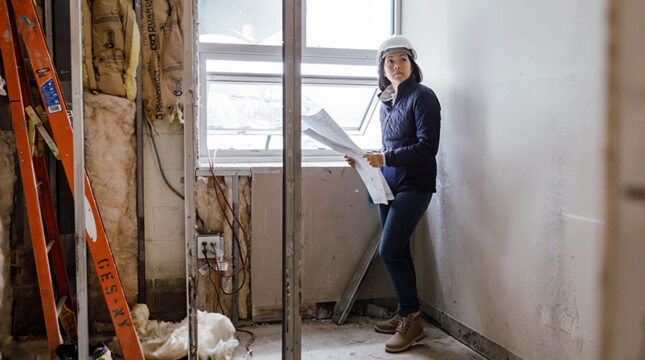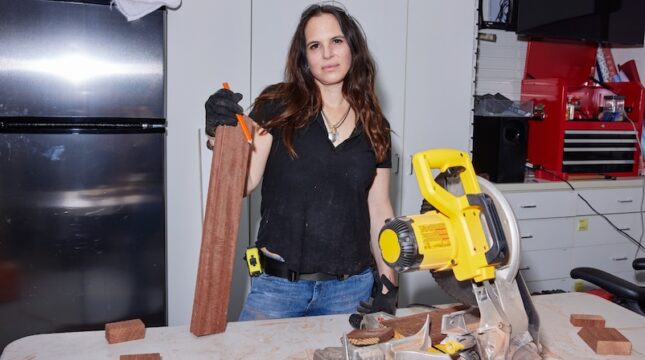How to get a general contractor license in Maryland
The requirements for a general contractor license in Maryland depend on the type of work you want to do.
For the construction license, requirements vary by county. Contact the clerk at your county’s Circuit Court Office to find the steps that apply to you.
To obtain a Maryland Home Improvement Contractor’s License, you’ll need the following:
- Two years of experience
- Pass a licensing examination
- Meet financial guidelines (have more assets than debt) or purchase a surety bond
- Pass a credit check
- Have a Certificate of Good Standing (if you represent a corporation)
- Purchase $50,000 of contractors liability insurance
- Obtain approval of your business name (if different from your real name)
If you also want to specialize in a specific trade in addition to being a general contractor, each area will have its own requirements.
For example, a plumbing license has multiple license types you can earn, from apprentice to journey plumber. A journey plumber needs at least four years as an apprentice, 7,500 hours of training under a master plumber, 32 hours of training in backflow prevention device testing, and a passing score on a written exam.
Contact your local circuit court to begin the application process if you want a construction license.
If you want a license for home improvements, you can start the application on the Maryland Department of Labor, Licensing and Regulation application page. Download and fill out the necessary paperwork, take any applicable exams and pay the fees.
After completing the exam, you’ll get a license application package with information about how to submit your application. It usually takes two to three weeks to approve, and your Home Improvement License usually arrives within 10 days after approval. However, your license may be added to the online database (where you can direct potential clients) before your paper license arrives in the mail.
How much does a general contractor license cost in Maryland?
Construction licenses vary by county, so you’ll need to contact your local circuit court and clerk’s office.
For MHIC licenses, you must pay a fee of $370 the first time you apply to cover the application fee, guaranty fund assessment, and processing fee. Additionally, the licensing exam costs $63. License renewals cost $250 and are required every two years.
Each time general contractors in Maryland renew their license, they must contribute $125 to a guarantee fund. This fund helps Maryland homeowners recoup losses if a licensed contractor fails to complete a project.
Local Maryland general contractor business license requirements
Since business license and insurance requirements are distributed between the State of Maryland and all the counties, it is essential to check local requirements as well.
Washington DC
If you’re opening a general contractor business in Washington DC, known for its historic buildings and neighborhoods, you may need to brush up on preservation guidelines and obtain any necessary approvals from the Historic Preservation Office. This may include adhering to specific construction methods, materials and design standards.
You’ll choose between a Home Improvement Contractor (HIC) or General Contractor/Construction Manager (GC/CM) license. Both require fees, liability insurance, and a tax ID. All contractors in DC need a Basic Business License (BBL) from the Department of Licensing and Consumer Protection (DLCP).
General liability insurance depends on the license class:
- Class A: $2,500,000 per occurrence,
- Class B: $1,500,000,
- Classes C, D and E: $500,000 per occurrence with varying aggregate limits for bodily injury or property damage.
Home improvement contractors need a minimum of $50,000 for bodily injury per person, $100,000 in total, and $10,000 for property damage per accident.
If you have employees, Workers’ Compensation insurance is mandatory.
Baltimore
In Baltimore, general contractor licenses go beyond state-level requirements.
MHIC licensing is mandatory for specific tasks like underpinning, foundation work and interior demolition, regardless of project size.
For electrical, plumbing, gas and HVAC, individual trade licenses are needed.
All contractors must also register in the ePermits database and hold an active license to participate in permit applications.
Baltimore doesn’t have additional city-wide insurance mandates beyond state requirements, but some factors can trigger specific needs.
Large-scale or complex construction projects often require builder’s risk insurance, typically mandated by project developers or lenders, not the city.
The Baltimore City Building Code may prescribe additional insurance for certain projects during the permit application review. Trade-specific licenses, like electrical and plumbing, may have their own insurance requirements set by respective licensing boards.
What insurance do Maryland general contractors need?
Aside from licensing, here’s a look at the general contractor insurance you should consider for your business.
General liability insurance
In Maryland, you must purchase at least $50,000 in general liability coverage to obtain a general contractor license for home improvements. Many business owners buy more, especially if they work with subcontractors on large projects.
General liability insurance can help pay for expenses if you are held liable for an injury (not including your employees) or damage to someone’s property while on the job. Without coverage, you could have to pay out-of-pocket.
Workers’ compensation insurance
General contractors with one or more employees must have Maryland workers’ compensation insurance. This insurance can help cover lost wages and medical expenses if one of your workers or a subcontractor is injured on the job.
Many sole proprietors also get workers’ comp because of the vital protection it offers after a workplace accident. Personal healthcare insurance won’t cover lost wages and might not cover injuries if you are injured while working on a construction site.
Tools and equipment insurance
To protect their expensive and valuable equipment, general contractors in Maryland can purchase tools and equipment insurance. The insurance provides coverage for loss or damage to these assets, whether stolen, damaged during transportation, or affected by natural disasters such as fire or flood.
With this insurance in place, general contractors can minimize the financial impact of any losses, allowing them to continue their operations without interruption and complete projects on time.
Commercial auto insurance
Commercial auto insurance provides essential protection for business-owned vehicles involved in an accident. It can help pay costs associated with injuries and property damage not typically covered by personal auto insurance policies.
Commercial property insurance
General contractors in Maryland need commercial property insurance to provide coverage for physical damage to your building and content, whether you own or rent.
Commercial property insurance allows general contractors in Maryland to secure their business and assets and ensure their operations can continue in the event of any unexpected events such as fire, theft, or natural disasters.
How NEXT can help Maryland general contractors
NEXT Insurance is 100% dedicated to small business and self-employed business owners. We can help general contractors get affordable and easy-to-manage business insurance in Maryland.
Our seamless online process lets you quickly get a quote for customized contractor insurance. You can purchase coverage and get a certificate of insurance in less than 10 minutes.
Get your quote today.







